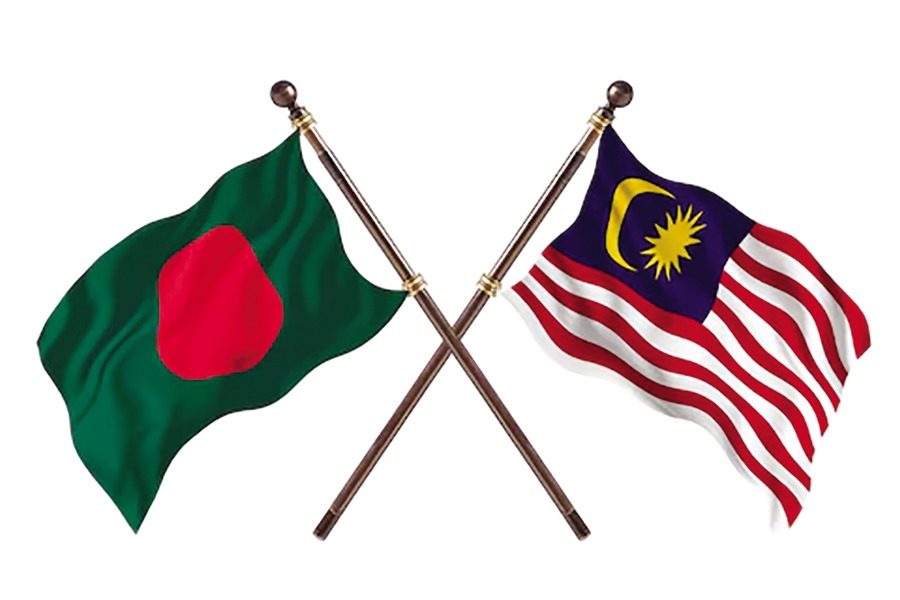
Published :
Updated :

The recent three-day state visit of Bangladesh's Chief Adviser to Malaysia appears to be more than a ceremonial goodwill tour. The signing of eight collaborative instruments by the two heads of government signals the prospect of a deeper and more strategic partnership-addressing long-standing issues such as the welfare of Bangladeshi migrant workers in Malaysia, while opening new avenues for economic and diplomatic engagement. The eight instruments include five Memoranda of Understanding (MoUs) and three Exchange of Notes covering a wide range of areas: defence cooperation, LNG and petroleum infrastructure, strategic and international studies, collaboration between apex chambers of commerce, higher education, halal food ecosystem development, and training for diplomats. In addition, both sides held substantive discussions on labour migration, the Rohingya crisis, trade, investment, blue economy, and cultural exchanges.
During a one-to-one meeting with the Malaysian Prime Minister, the Chief Adviser expressed gratitude for Malaysia's recent measures to facilitate the entry of nearly 8,000 stranded Bangladeshi workers through a simplified protocol, the introduction of multiple-entry visas, and the provision allowing workers to return home during emergencies without risking their jobs. Both leaders agreed on the need for transparent and fair recruitment processes to lower migration costs and protect worker welfare.
On economic matters, the two countries resolved to expedite negotiations for a Bangladesh-Malaysia Free Trade Agreement, strengthen investment cooperation through Special Economic Zones, and operationalise the Malaysia-Bangladesh Joint Business Council. Recognising the current trade imbalance, Bangladesh urged Malaysia to expand market access for products such as medicines, batteries, footwear, ceramics, and jute goods. The Chief Adviser also sought Malaysia's support in developing the halal industry, including the establishment of a Halal Economic Zone near Dhaka, and reiterated Bangladesh's interest in joining the Regional Comprehensive Economic Partnership (RCEP). The Rohingya crisis featured prominently in the talks. Bangladesh, Malaysia, and other Southeast Asian nations are planning to dispatch a joint peace mission to Myanmar in the coming weeks to advocate for peace and humanitarian assistance for the Rohingya and other affected communities. Bangladesh currently hosts around 1.2 million Rohingya refugees, most of whom fled Myanmar's Rakhine State during the 2017 military crackdown. Since 2023, a further 200,000 have sought refuge in Bangladesh. Malaysia, which shelters over 100,000 Rohingyas, also grapples with trafficking networks exploiting refugees attempting dangerous sea crossings. In an effort to restore global attention to the Rohingya crisis, the United Nations-at Bangladesh's request-will convene a high-level conference on September 30 in New York. A preparatory meeting is scheduled for August 25 in Cox's Bazar, marking the eighth anniversary of the mass influx. Bangladesh has invited Malaysia to participate in both events.
The prospects for improved Bangladesh-Malaysia relations appear highly promising. While labour migration remains the most visible and immediate concern, the potential for broader economic cooperation-through expanded trade, joint investments, and strategic sectoral collaboration-holds the promise of sustainable, mutually beneficial outcomes for both nations.


 For all latest news, follow The Financial Express Google News channel.
For all latest news, follow The Financial Express Google News channel.